A week with Google's Chrome OS laptop, Day 6: Adopting a new lifestyle
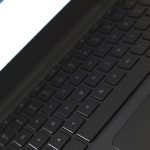
Chrome OS demands computing differently, but not as radically as some people think, or so I have concluded six days into using Google's unbranded Cr-48 laptop. Persistent Net connection is required and storage is generally on the InterWeb rather than on the computer; these changes take some adjustment.
I'm accustomed to running applications locally. I can't on Chrome OS.
A week with Google's Chrome OS laptop, Day 5: My life in the cloud
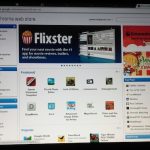
Settling into the cloud is taking longer than I expected, as I try to root out enough applications to make up for what I used locally on my last laptop -- the 11.6-inch MacBook Air. The simple reality: There aren't enough good applications yet, or perhaps I'm just too slow finding them. Strangely, if I were living in a different cloud -- from smartphone or tablet -- I could choose from plenty of apps and many of them would be better than those available on the PC (the difference, of course, being something running locally and connected versus something running in the browser that must be connected).
I got a stronger-bitter sweet taste of the difference between the clouds on the evening of Day 5, when I bought the Nexus S smartphone running Gingerbread (aka Android 2.3) from the local Best Buy Mobile.
A week with Google's Chrome OS laptop, Day 4: Who is the cloud for?
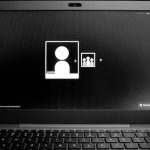
Few months ago, while walking around Apple Store, minutes after leaving Microsoft Store, I suddenly thought: "My next laptop will run Chrome OS." Well, almost. I ended up with 11.6-inch MacBook Air first. But four days into using the unbranded Google Cr-48 laptop running Chrome OS, I can see living in the cloud as a reasonable future -- not just for me but many other computer users. Problem: It's a residence not quite finished. There's a roof overhead and enclosed walls, but rooms are drafty, electricity works only in some places and the appliances are portable temporaries.
Running Chrome OS on Cr-48 reminds me of testing Windows NT 4 and Mac OS X 10.0 as beta and final release. Windows NT 4 debuted ahead of its time. The hardened security model meant problems connecting peripherals and running many applications. NT 4 was a lonely domicile -- analogous to the first house finished in a new community. Mac OS X 10.0 was similar. Apple made the outrageous decision to ship the operating system before there were adequate drivers for optical drives on existing Macs. Mac OS X also was a new platform for which there were few applications and for which Apple's low PC market share gave developers little incentive to write native ones.
Somasegar gets it, do you?

The end-of-year retrospectives are popping up everywhere as Christmas and New Years approach. This morning, Soma Somasegar's walk down 2010 memory lane caught my attention. He posted "A Year of Excitement" late-day yesterday (Eastern Standard Time). Whether or not there is any Microsoft "excitement" is topic for discussion in comments. But the tone of his post and emphasis is something other Microsoft bloggers -- and employees from other tech companies -- should try to imitate as they look back on the year or even ahead to 2011.
Somasegar writes: "I'm always impressed with the work we do here at Microsoft -- you can see how unbiased I am :) -- but this year I'm especially proud to see some of the work having a real impact in my house and with my family members." Stop right there. Somasegar is senior vice president of Microsoft's Developer Division. He's not a consumer evangelist but a developer. He works for a company selling most of its products to businesses, and he engages developers among them.
A week with Google's Chrome OS laptop, Day 3: Living with Flash
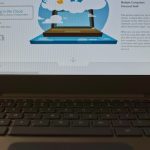
I've spent the last six weeks living the serene computing life, like being back on a Maine farm, with dusty roads, upward-reaching pines and Milky Way spanning night skies. Switching from the 11.6-inch MacBook Air to Google's Cr-48 brought back city congestion and bursting neon signs. Adobe Flash is back in my life, and it's hurting my Chrome OS experience.
"Whether or not Flash?" is topic for Day 3 of my week-long usage experiment, and it's a question many other people are sure to ask. Previous posts in this series: "A week with Google's Chrome OS laptop, Day 1: Getting acquainted" and "A week with Google's Chrome OS laptop, Day 2: Becoming a cloud citizen."
It's the holidays, how do you use your phone to shop?
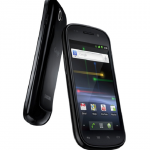
I ask because of a surprising mobile shopping report made available today. What caught my interest was methodology -- survey by mobile phones -- and sample size of 12,533. Briabe Media put together the survey, conducted on MocoSpace's mobile network of 14 million registered users. Among the 31-page PowerPoint report's findings: 62 percent of respondents used their phones to research products or pricing before going shopping. Forty-six percent used their phones to comparison shop once in the stores.
Can you say personal shopping assistant? What the report doesn't reveal is where mobile users do their comparison shopping. Is it using the Amazon app or perhaps Google Googles? Something else? I rarely buy anything selling for more than $20 without comparison shopping in the store. What about you?
Apple crashes CES party with Mac App Store
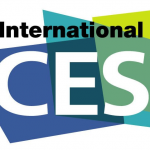
Suddenly, Microsoft CEO Steve Ballmer's Consumer Electronics Show keynote is a heavier burden. Ballmer will open CES, with a 9:30 pm EST keynote on Jan. 5, 2011. On January 6th, Apple will officially launch the Mac App Store, exclusively for Mac OS X 10.6 (aka Snow Leopard). Earlier this morning, Apple announced the store opening date, and you can be sure timing is deliberate.
For years, Apple has played a game of oneupmanship with CES, timing announcements so that they would suck away some of the excitement and press coverage around products debuted or updated there -- iPhone in 2007, MacBook Air in 2008 and iPad in 2010. Then there are the rumors, often obviously from internal leaks, ahead of big Apple announcements. Apple has a knack for marketing manipulation -- controlling the message and perception. Blogs' and news sites' ever quest for pageviews makes every Apple rumor worth another story. Then there is clear media bias favoring Apple.
A week with Google's Chrome OS laptop, Day 2: Becoming a cloud citizen
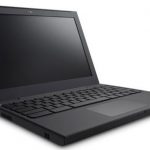
I've long prided myself on being a good cloud citizen. I seemingly live in the browser. But using the Cr-48 laptop running Google's Chrome OS, I discovered the number of important but small apps that are vital to my daily computing. I have been living a double life, meandering as nomad between two computing domiciles, never really settling into one or the other.
All the blogging or reporting I do takes place in the browser. It's where I use Twitter and collect RSS feeds. But I rely on clients for instant messaging and email. I run Skype, too, and most importantly a media client -- right now iTunes, with 90GB of music stored on an external hard drive. The biggest challenge on Day 1 got unexpected relief on Day 2: Gmail. How do you manage separate Gmail accounts -- I've got four of them -- when each requires separate sign-in? I used a different account to set up the laptop than the domain attached to Google Apps. I'll answer the question in a few paragraphs.
Google releases Chrome IT deployment tools

Google just announced availability of IT deployment tools for Chrome in a blog post (I also received email from the PR team). The deployment tools step up Google's assault on Internet Explorer turf, earlier with Chrome Frame.
"We've created an MSI installer that enables businesses who use standard deployment tools to install Chrome for all their managed users," according to the blog post. "We've also added support for managed group policy with a list of policies and a set of templates that allow administrators to easily customize browser settings to manage security and privacy."
Would you pick Mark Zuckerberg as Person of the Year?

The editors of Time magazine have done just that. But is he worthy?
Time readers chose WikiLeaks editor-in-chief Julian Assange; Time editors put him as fourth runner up. Facebook CEO Zuckerberg ranked 10th among Time readers. It's a question I pose to Betanews readers: Would you chose Zuckerberg, or someone else, as Person of the Year?
A week with Google's Chrome OS laptop, Day 1: Getting acquainted
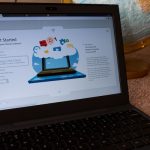
"Just when I thought I was out -- they pull me back in," says Michael Corleone in movie "Godfather III." I understand the sentiment. Two weeks ago I asked: "I sold my soul to Google, can I get it back?" The answer is no. On December 13, I received from Google the Cr-48 laptop running Chrome OS. They pulled me back in.
Google sent the 12.1-inch notebook as part of a 60,000-unit pilot program. The company seeks to shakedown Chrome OS in preparation for commercial release sometime in mid 2011, to provide IT organizations opportunity to test the cloud-dependent operating system and to churn developer interest and new applications. Google is clear that the Cr-48 is a test bed not really ready for primetime.
IDC predicts mobile apps will drive the 'Appification of Everything'
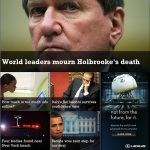
Last week, I took my daughter to Los Angeles for a TV commercial audition. About 20 other teen girls waited with their parents, and all -- every single one and parents, too -- had out a smartphone. Tap, tap, tap text and apps. It's an anecdotal moment supporting an IDC prediction: By 2014 the global market for mobile applications will surpass $35 billion.
IDC published the findings in a new report "Worldwide and U.S. Mobile Applications, Storefronts, and Developer 2010-2014 Forecasts and Year-End 2010 Vendor Market Shares: The 'Appification' of Everything." The analyst firm is quite serious about so-called "appification" (God help us if the word makes the Oxford English Dictionary by end of 2011). There are two main trends: Lighter, mobile apps popping up in more devices -- some stationary like settop boxes -- and mobile applications impacting virtually everything people do. Personal example of the latter: During the drive back from LA, my daughter downloaded an app that turned her smartphone's LED camera flash into a light, so she could do homework.
I'll tell you something about Microsoft

The year 2011 will be make or break.
Early year, make or break will be one of perception, whether or not customers and shareholders see the glass as half full or half empty. From the half-full perspective, Microsoft has bet big on the cloud, and at the right time. From the half-empty viewpoint, Microsoft muffed mobile, by first fumbling smartphones and later tablets. The company started pushing the latter category a decade ago, only to lose it to Apple during 2010.
I'm changing my passwords, shouldn't you?

There's something unbelievable about Gawker claiming to be "embarrassed." Considering the amount of raunch and rumor Gawker sites like Gizmodo publish, editors show no signs of being embarrassed by anything they do. Yesterday's hack, which exposed 1.3 million Gawker usernames and passwords and some of the content management system source code, can only be good for churning pageviews. How funny if "embarassed" turns out to be ashamed of profiting so much from readers' hardship -- Gawker having an unusually good month of traffic.
The Gawker hack and other mischief and mayhem going on this month should be warning to everyone on the InterWeb: Nothing is private. Amazon, Facebook or Google mine your private information, while some hacker or insider makes it available for everyone to read, whether on some torrent or even WikiLeaks. There's no such thing as privacy on the Internet, and there never really was. People acknowledge this all the time, then flip on the denial -- "It could never happen me" -- switch. No doubt, many Betanews commenters speak out elsewhere. If that's Gizmodo, you've been hacked, baby. It's time to change passwords anyplace using the same one(s) at Gawker.
Who really needs a Chrome OS laptop?

Yesterday in comments, Betanews reader DaveN asked why anyone would make the sacrifices he believes necessary to run a Chrome OS laptop. "If you're going to carry around a device in the laptop format, why would anyone want something so limited?" It's a good question, that necessitates two answers -- one for now and another when the first units are commercially available.
On December 7th, Google announced a pilot program, distributing some 60,000 unbranded Cr-48 laptops running Chrome OS. I expect to receive one for review as early as this week. That's a helluva pilot program, which has me laughing. I don't hear anyone fussing about Google handing out laptops the way they did about Microsoft with Windows Vista. That's some double standard. Microsoft offered bloggers and reviewers free Vista notebooks four years ago this month. Happy Christmas! I publicly supported the Vista program -- "Microsoft's Laptop Giveaway is About Influence Not Bribery" -- even though I didn't get a computer; there was no conflict of interest in my support. Microsoft handed out the notebooks before Windows Vista released. How else were reviewers going to use and test the operating system? Google's situation is similar, with commercial units six months, perhaps more, away.
Joe's Bio
Joe Wilcox is BetaNews executive editor. His motto: Change the rules. Joe is a former CNET News staff writer, JupiterResearch senior analyst, and Ziff Davis Enterprise Microsoft Watch editor.
Ethics StatementBetaNews, your source for breaking tech news, reviews, and in-depth reporting since 1998.
© 1998-2025 BetaNews, Inc. All Rights Reserved. About Us - Privacy Policy - Cookie Policy - Sitemap.
